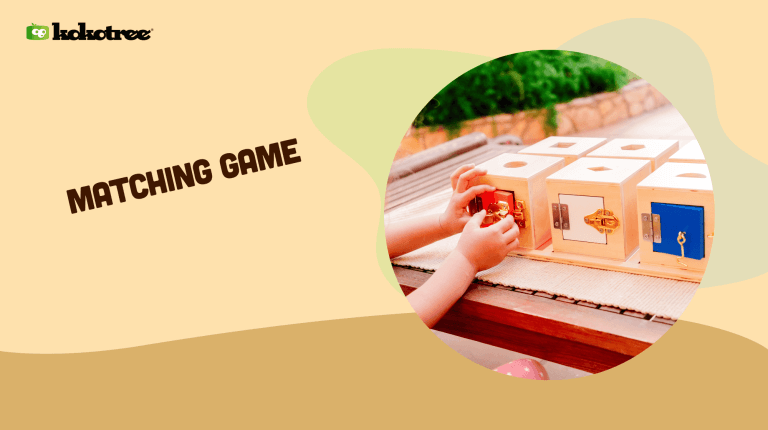

Written by: Kokotree
Updated:

Memory games are a popular choice for children in all stages of their growth. Their inherent simplicity coupled with their educational benefits have endeared them across generations. One such classic is the Matching Game, a simple yet effective tool to sharpen memory and enhance cognitive skills. Easy to set up and fun to play, the Matching Game harnesses the playful spirit of a child while subtly honing their memory, recognition, and problem-solving skills.
The Matching Game is an entertaining and educational activity that engages children in a fun exercise to identify and match pairs of identical cards or objects. It serves as a tool to boost memory, improve concentration, and enhance visual perception by challenging a child’s ability to remember locations and details of different items.
For ages 2-6. They watch and play for 20 minutes. You get a break.
⭐ 5,000+ parents get daily breaks with Kokotree.
Try it Free →Works in 30 seconds • No credit card • Cancel anytime
The foremost aim of the Matching Game is to locate and pair identical cards or objects. The player who matches the maximum number of pairs by the end of the game is declared the victor. Much beyond the competitive spirit, the game primarily serves to enhance memory power, recognition skills, and the ability to distinguish between different objects.
For ages 2-6. They watch and play for 20 minutes. You get a break.
⭐ 5,000+ parents get daily breaks with Kokotree.
Try it Free →Works in 30 seconds • No credit card • Cancel anytime
The Matching Game aids in plethora of skill development:
Stay engaged with kids during the game. Praise their efforts to keep their morale high. Feel free to give gentle hints if they struggle. Make the session fun, not strained. The primary aim is to develop skills, not win the game.
Q1: At what age can my child start playing Matching Games?
A1: As soon as a child can recognize and distinguish between different objects, usually around 2 years old, they can start playing the Matching Game.
Q2: Can the Matching Game be played alone?
A2: Absolutely! It’s a fantastic solo activity that can be just as engaging and beneficial as playing in a group.
Q3: Is the Matching Game good for my child’s development?
A3: Yes, the Matching Game is excellent for enhancing a range of skills from memory to social skills. It’s a great addition to any curriculum or playtime activity.
Ensure playing cards or objects aren’t small enough to be a choking hazard for younger kids. Supervision is needed during the game to ensure play is safe and fair.
Armed with a knowledge of a simple yet effective game like Matching Game, take the first steps towards making learning fun and engaging for your toddler. Whether as a teacher or a parent, you are their guide in this crucial phase of development. With this game, you can transform their learning journey into an experience embellished with joy, shared laughter, and a plethora of developmental benefits. Let the fun and learning begin!



